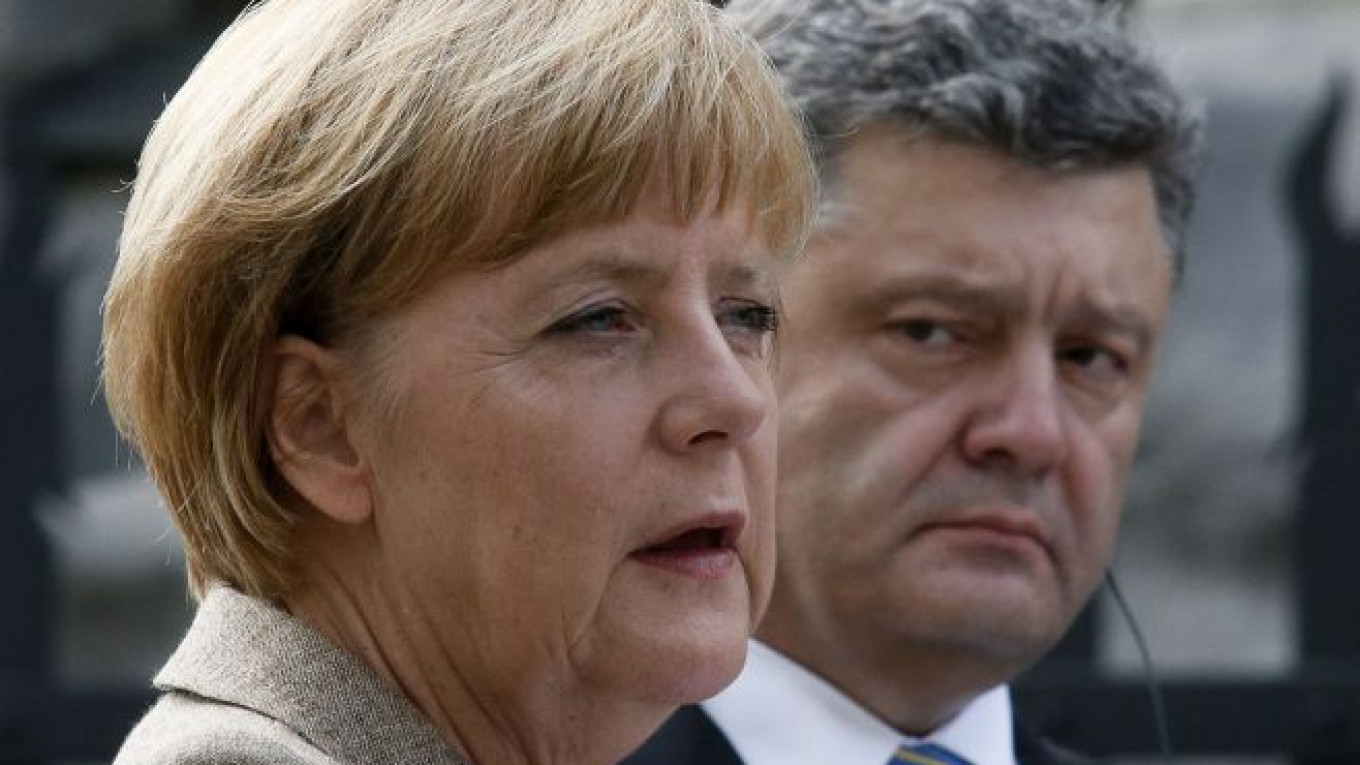BERLIN — German business sentiment dropped for a fourth straight month in August as concerns about the Ukraine crisis and the impact of sanctions against Russia swept through corporate boardrooms in Europe's largest economy.
The Munich-based Ifo think tank's business climate index, based on a monthly survey of some 7,000 companies, fell to 106.3 from 108, undershooting the Reuters consensus forecast of 107.
That was its lowest level since last July and marked the longest period of successive monthly declines in the index since the height of the euro zone crisis in 2012.
The reading raised doubts about the strength of the economy after a surprise second-quarter contraction, sending the euro to a day's low against the dollar and lifting German Bund futures to a day's high.
"The crisis in Ukraine but also the disappointing recovery in the euro zone are weighing on confidence and thus investment," Berenberg Bank senior economist Christian Schulz said.
"German growth could still recover quickly if the tensions in eastern Ukraine were to subside. But that remains a distant prospect, suggesting that economic weakness will persist," he said.
German gross domestic product shrank by 0.2 percent between April and June and the finance ministry has partly blamed this on the Ukraine crisis and sanctions against Russia. Growth in the euro zone ground to a halt in the same period.
Speaking in Spain at the end of a two-day visit, German Chancellor Angela Merkel said that while a mild winter meant the increase in activity that usually falls in the spring was early, the crisis in Ukraine was also taking its toll.
"There are, however, some uncertainties. I don't want to conceal that. The whole Ukraine-Russia situation shows that we, of course, have a big interest in our international relations being constructive again," she said, noting that she nonetheless expected Germany's annual growth rate to be "good."
A spokesman for Germany's economy ministry said the basic economic trend remained intact and the German economy should return to growth in the remainder of the year thanks to a robust job market and the domestic demand that this supports.
Ifo economist Klaus Wohlrabe said Ifo expected growth to be "close to zero" in the third quarter, many economists having forecast that Germany would regain momentum in that period.
He said Ukraine was burdening the economy, though the impact was hard to quantify and Germany was still far from recession, and companies that had business relations with Russia were, on average, more pessimistic than those that did not.
"There's more uncertainty for them. It's psychology above all that plays a role in that," he said, noting that if the Ukraine conflict were to be resolved, it would help exporters, particularly manufacturers of capital goods.
Germany has extensive business ties with Russia, with more than 6,000 German firms active there. About 10 percent of German exporters send goods to Russia and some of those are concerned that the standoff between Moscow and the West over Ukraine will hurt their business.
Consumer goods group Henkel has forecast a tough six months ahead with political turmoil in Russia, and German defense firm Rheinmetall has cut its profit outlook.
The value of German shipments to Russia fell 15.5 percent to 15.3 billion euros ($20.2 billion) in the first six months of the year, led by a sharp fall in car and machinery shipments, and Ifo said manufacturers were expecting less impetus from exports.
"This significant [Ifo] drop leaves no doubt about it. The German economy has passed its peak for now," VP Bank Group chief economist Thomas Gitzel said.
"Geopolitical risks are unnerving German firms, but even without the various conflicts it would not have been possible for the German economy to grow more," he said.
See also:
A Message from The Moscow Times:
Dear readers,
We are facing unprecedented challenges. Russia's Prosecutor General's Office has designated The Moscow Times as an "undesirable" organization, criminalizing our work and putting our staff at risk of prosecution. This follows our earlier unjust labeling as a "foreign agent."
These actions are direct attempts to silence independent journalism in Russia. The authorities claim our work "discredits the decisions of the Russian leadership." We see things differently: we strive to provide accurate, unbiased reporting on Russia.
We, the journalists of The Moscow Times, refuse to be silenced. But to continue our work, we need your help.
Your support, no matter how small, makes a world of difference. If you can, please support us monthly starting from just $2. It's quick to set up, and every contribution makes a significant impact.
By supporting The Moscow Times, you're defending open, independent journalism in the face of repression. Thank you for standing with us.
Remind me later.


